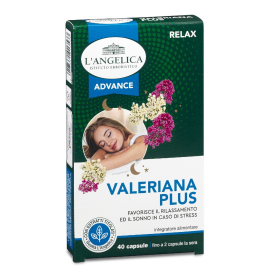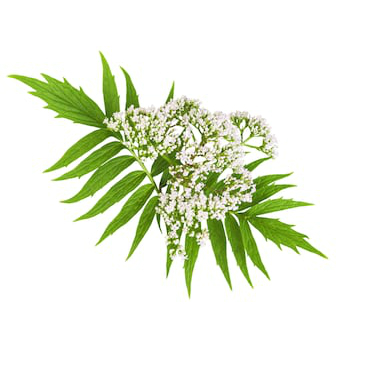FREE SHIPPING FROM 35 €
Search
Natural Ingredients
Valerian
Sedative, antispasmodic, hypnotic action
Valerian extract is traditionally used to relieve mild nervous tension and sleep disorders.
Other preparations of root are used in folk medicine to relieve mild symptoms of mental stress and promote sleep.
The action of Valerian is probably due to a synergy of its multiple and different components that, by acting on different receptors in the brain, they both help sedative activity (which is therefore not entirely attributable to valepotriates).
We do not recommend the use of essential drugs of valerian root in children under 12 years of age, as there is insufficient information on the safety of the product for this age group.
I nutraceutici
* Essential oil (0.5-1.5%) containing:- Hydrocarbons monoterpenic: a-pinene, fenchene, camphene, (3-pinene, limonene etc.
- Terpene alcohol
- Sesquiterpene hydrocarbon: beta-bisabolol etc.
- Cetoni terpene: isovalerianato Bornyl
- Terpene aldehydes: valeranale
* 0.5-2% of valepotriates:
* 0.1% of alkaloids: valerianina (sedative), actinidina, Valerina etc.
The fresh root is virtually odourless: during drying appears the typical smell due to the liberation of the acid isovalerianic.
Relaxing bath, lotion for skin with acne and rashes.
The botanical name is deduced from the Latin valere (strict, healthy). The popular name, grass cat, comes from the fact that the fresh plant exerts a kind of "psychotropic" on cats.
It acts on the central nervous system (anxiety syndromes, states of nerve-palpitations), convulsions (as adjuvant), insomnia (> intellectual fatigue and stress), headache, migraine; gastric and colonic spasms.



